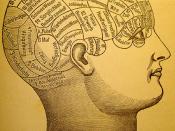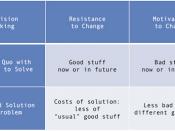"The Powers & Perils of Intuition"
Psychology Today, Dec. 2002, Vol. 35 Issue 6 P 42
In this essay, David G. Meyers, Ph. D., explores the mystery behind the reliability behind intuition and why it is sometimes a force that can't be denied. Our minds operate on two levels: the conscious or deliberate level and the unconscious or automatic level. It seems as if we have two minds: "one for momentary awareness and one for everything else." We tend to follow our first impressions or intuitive thoughts as shown in one research study done at Harvard. Different professors were recorded at the beginning, middle and end of class and then these recordings or "thin slices" were shown to students who then rated them as confidence, energy and warmth. Findings showed that these ratings were very accurate. According to John Bargh, Ph. D., of NYU, "We're finding that everything is evaluated as good or bad within a quarter of a second.
So before engaging in rational thought, we may find ourselves either loathing or loving a piece of art or our new neighbor." Human intelligence is more than logic and comprehension is more than consciousness.
Intuition in women particularly has always been classified as superior to men's intuition. One study showed that women generally surpass men at figuring out emotional messages. This sensitivity also aids women in spotting lies. Women base knowledge on intuition and personal experiences. Men tend to think logically and see themselves as "thinkers," making decisions objectively while women see themselves as "feelers," who make decisions on what they feel is right.
Even though intuition is a big part of decision-making, intuition can often be wrong. Since the beginning of history, human intuition has been put to the test. It is amazing how vulnerable humans are...


